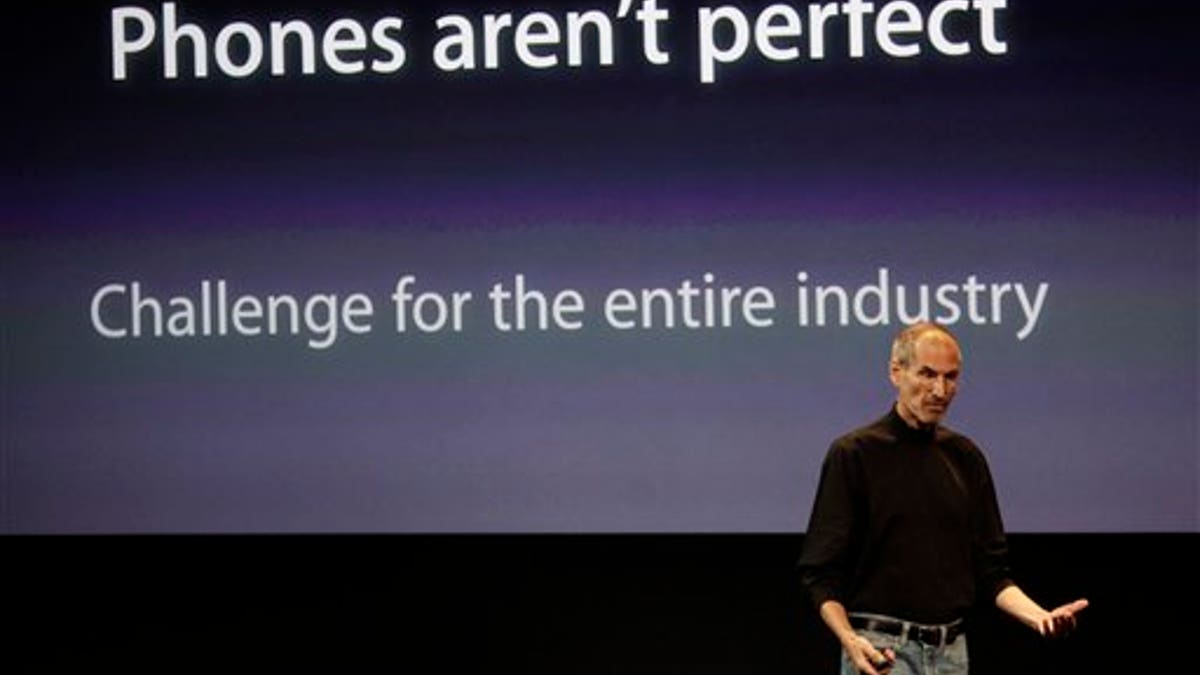
Apple CEO Steve Jobs talks about the Apple iPhone 4 at Apple headquarters in Cupertino, Calif., Friday, July 16, 2010. (AP Photo/Paul Sakuma)
Phone calls might drop, but not complaints about problems with iPhone reception.
Apple announced Friday that the company will discontinue its free case program at the end of September, a program that addressed reception issues with the new iPhone 4. Yet those reception issues haven't been fixed, Consumer Reports argued Monday, and the consumer-watchdog group still can't recommend the new phone.
“[Putting] the onus on any owners of a product to obtain a remedy to a design flaw is not acceptable to us,” wrote the group in a blog post to its website.
Apple announced an end to the program, after its analysis indicated that the reception issues affected only a tiny percentage of customers.
“We now know that the iPhone 4 antenna attenuation issue is even smaller than we originally thought,” the Cupertino company said on its website. Consequently, it plans to discontinue the free case program on all iPhone 4 phones sold after September 30. A free bumper will still be available for those who request one.
Consumer Reports disagreed, arguing that signal problems remain -- and it's up to Apple to fix them.
"We therefore continue not to recommend the iPhone 4, and to call on Apple to provide a permanent fix for the phone's reception issues."
Antenna issues have plagued Apple chief Steve Jobs since the phone’s July launch -- a rare misstep and potential Achilles heel for what experts call an otherwise superbly executed device. As Consumer Reports and numerous other reviewers discovered, touching the metal band on the lower left side of the phone caused potentially significant reception problems.
Initially denying the very existence of the issue, Jobs told one customer via a private e-mail to “just avoid holding it in that way.” A public uproar ensued, and Apple finally relented, offering a free case program that the company hoped would appease the public.
Despite the flaw, Consumer Reports still ranks the iPhone as the highest rated smartphone it has ever tested. But ultimately, the no-recommend rating comes down to Apple’s attitude and failure to acknowledge the problem appropriately, the organization argued, noting that Apple has yet to supply evidence for reversal of procedure.
“Apple provided no data to detail its claim of lower-than-expected incidence of dropped calls,” the group said on its blog.
And until Jobs and Co. “provide a permanent fix for the phone’s reception issues,” the iPhone 4 won’t be getting that recommendation.




















